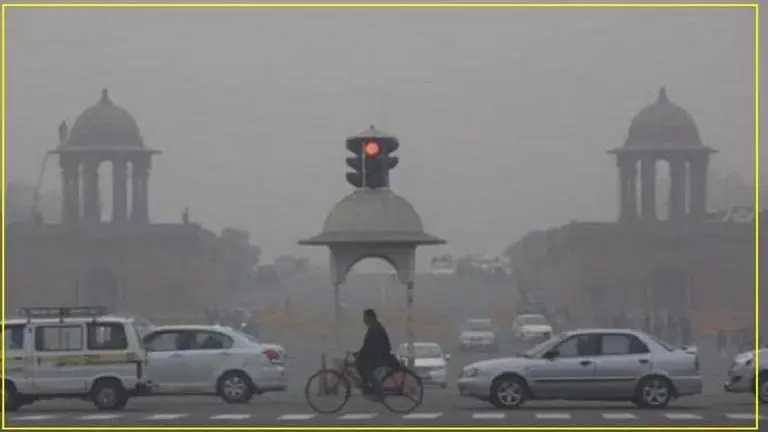Updated 14 December 2019 at 10:19 IST
Delhi's AQI improves marginally after light showers and increase in wind speed
On Saturday, the air quality in the national capital improved slightly due to an increase in the wind speed and light showers, moving from 'severe' to 'poor'
- India News
- 2 min read

On Saturday, the air quality in the national capital improved slightly due to an increase in the wind speed and light showers, moving from 'severe' to 'poor' category. The overall air quality index (AQI) was recorded at 280, according to the System of Air Quality and Weather Forecasting And Research (SAFAR). Major pollutants PM10 and PM 2.5 were at 108 and 70, respectively. This comes as a minor relief for Delhi which has been experiencing 'hazardous' levels of AQI for the past few days recording levels over 407.
"The rainfall associated with western disturbance has contributed to this quick recovery through wet deposition (washing out) process. The SAFAR model suggests AQI is likely to stay at the poor to the moderate category on December 14. On December 15 AQI may marginally deteriorate but will remain in the poor to the lower end of the very poor category," stated SAFAR in its advisory.
The AQI in Dhirpur was 146 at 8:30 am and 276 in Mathura Road area. The AQI near Pusa Road, Airport, Terminal 3, and Delhi University was 290, 235 and 266 respectively.
Advertisement
An AQI between 0-50 is considered good, 51-100 is satisfactory, 101-200 is moderate, 201-300 poor, 301-400 very poor and 401-500 is marked as severe/hazardous.
The maximum temperature of the national capital today will be 19 degrees Celsius and the minimum temperature will fall to 10 degrees celsius. Smog in Delhi will continue to persist during early morning and late evenings for the next couple of days.
Advertisement
Central Pollution Control Board issues warning
Last week, the Central Pollution Control Board (CPCB) had said during a review meeting that December and January have seen a number of days in the "very severe" category in the last three years and a similar situation may occur this year as well unless timely and adequate field-level preventive action is taken by implementing agencies. It asked them to intensify enforcement activities in hot spots and industrial areas and recommended people to minimize the use of private vehicles.
(With Agency Inputs)
Published By : Ananya Varma
Published On: 14 December 2019 at 09:52 IST
